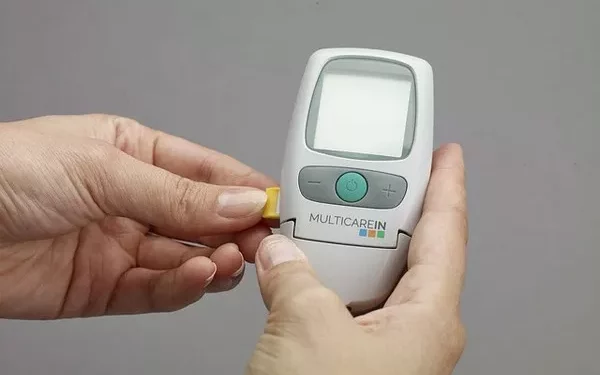Importance of Accuracy in Glucose Monitoring
For individuals with diabetes, maintaining tight control over blood glucose levels is crucial for preventing complications and optimizing quality of life. Accurate glucose monitoring allows for timely adjustments in insulin or medication doses, facilitates effective meal planning, and helps individuals make informed decisions about their health.
Understanding True Metrix Meters
True Metrix meters are a popular choice among individuals with diabetes due to their ease of use, affordability, and accessibility. These meters utilize advanced technology to measure glucose levels from a small blood sample obtained through fingerstick testing. The True Metrix system typically includes a meter, test strips, and control solutions to verify accuracy.
Accuracy Standards for Glucose Meters
Glucose meters must meet specific accuracy standards set by regulatory bodies such as the FDA (Food and Drug Administration) in the United States and similar agencies worldwide. These standards ensure that meters provide results within an acceptable range compared to laboratory reference methods. Typically, glucose meters are required to meet ±15% accuracy criteria for readings above 75 mg/dL and within ±15 mg/dL for readings below 75 mg/dL.
Clinical Evaluation of True Metrix Meters
Clinical studies and evaluations assess the accuracy and reliability of True Metrix meters under various conditions, including:
- Precision: The ability of the meter to produce consistent results when the same sample is tested multiple times.
- Accuracy: How closely the meter’s readings match reference laboratory measurements or other validated methods.
- Interference: Potential factors or substances that may affect meter performance, such as hematocrit levels, altitude, temperature, and certain medications.
Performance of True Metrix Meters
True Metrix meters have demonstrated reliable performance in clinical studies and real-world use, meeting or exceeding accuracy standards required for effective diabetes management. Key aspects of their performance include:
- Accuracy across glucose ranges: True Metrix meters typically provide accurate results across a wide range of glucose levels, from hypo- to hyperglycemic conditions.
- Precision: These meters exhibit good precision, ensuring consistent results with minimal variability when testing under similar conditions.
- Ease of use: User-friendly design and clear display interfaces make True Metrix meters accessible and convenient for daily glucose monitoring.
Factors Affecting Meter Accuracy
Several factors can influence the accuracy of glucose meter readings, including:
- User technique: Proper fingerstick technique, handling of test strips, and meter operation according to manufacturer instructions are crucial for accurate results.
- Environmental conditions: Extreme temperatures, humidity, and altitude can impact meter performance and should be considered when testing.
- Hematocrit levels: Variations in hematocrit (red blood cell volume) can affect glucose meter readings, requiring adjustments or corrections in certain situations.
- Interfering substances: Certain medications, supplements, and substances in the bloodstream may interfere with meter accuracy, necessitating awareness and management strategies.
Accuracy Comparisons with Laboratory Methods
True Metrix meters undergo rigorous testing to validate their accuracy against reference laboratory methods. Comparative studies have shown that these meters generally provide clinically acceptable results, allowing for reliable glucose monitoring in home and clinical settings.
Clinical Use and Reliability
Healthcare professionals and individuals with diabetes rely on the accuracy and reliability of True Metrix meters for daily glucose monitoring and management. These meters empower users to track glucose trends, make timely treatment decisions, and collaborate effectively with healthcare providers to adjust diabetes care plans as needed.
Tips for Ensuring Accurate Glucose Monitoring
To optimize the accuracy of glucose meter readings with True Metrix meters, consider the following tips:
- Calibrate regularly: Use control solutions as recommended by the manufacturer to verify meter accuracy and performance.
- Check expiration dates: Ensure that test strips and control solutions are within their expiration dates to maintain reliability.
- Store properly: Follow storage guidelines for test strips and meters to prevent exposure to extreme temperatures or humidity.
- Maintain good technique: Practice proper fingerstick technique and meter operation to minimize user-related errors.
- Monitor trends: Track glucose trends over time rather than relying on single readings to make informed decisions about diabetes management.
- Consult healthcare providers: Discuss meter performance, concerns, and any significant glucose fluctuations with healthcare providers to optimize diabetes care.
See also: What’s the Best Blood Sugar Monitor: A Comprehensive Guide
Conclusion
True Metrix meters provide reliable and accurate glucose monitoring solutions for individuals with diabetes, supporting effective management of blood glucose levels and overall health. Clinical evaluations and real-world use demonstrate that these meters meet regulatory accuracy standards and offer consistent performance across various conditions. By understanding meter accuracy, optimizing testing techniques, and leveraging technological advancements, individuals with diabetes can confidently use True Metrix meters to monitor their glucose levels, make informed health decisions, and achieve better diabetes management outcomes.
Related topics:
What’s the Causes of High Blood Sugar Levels



























